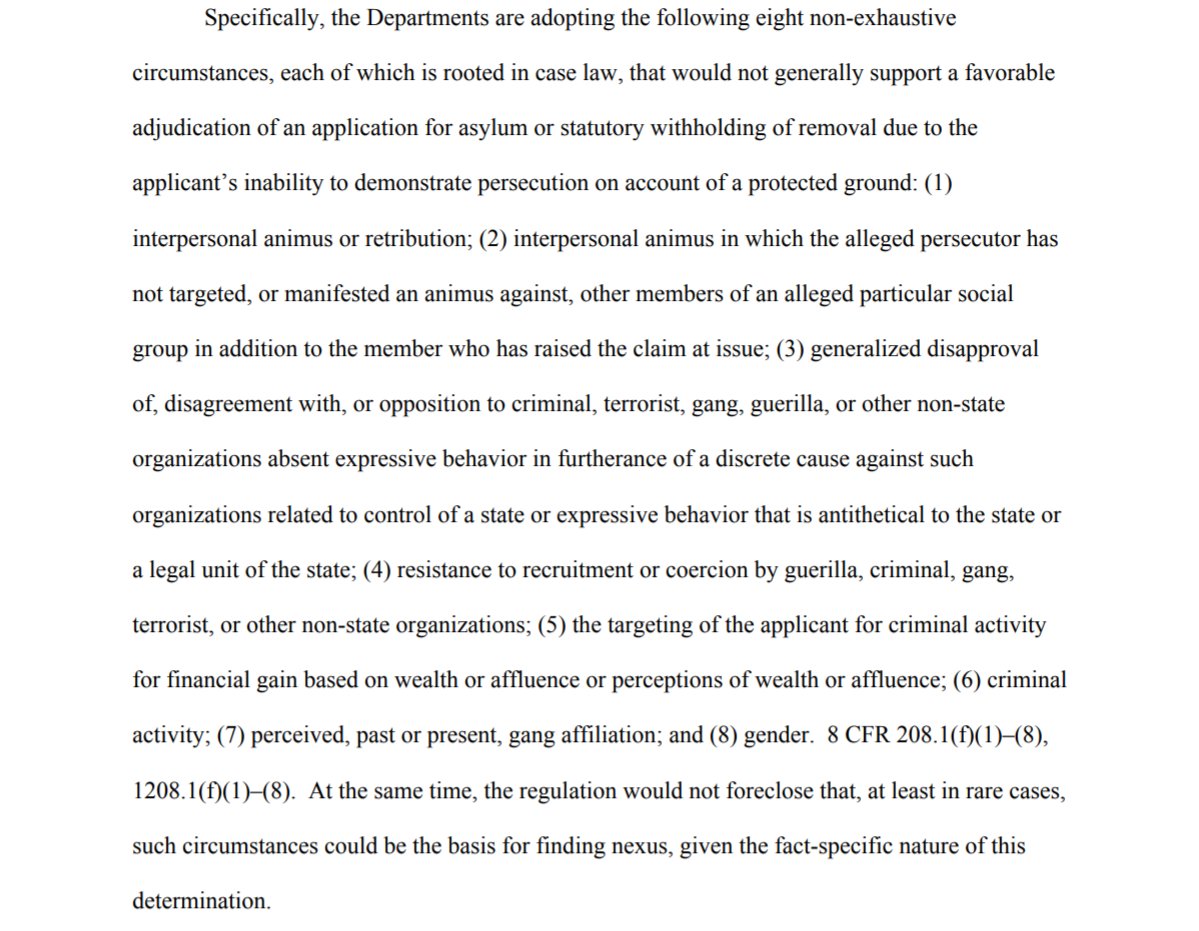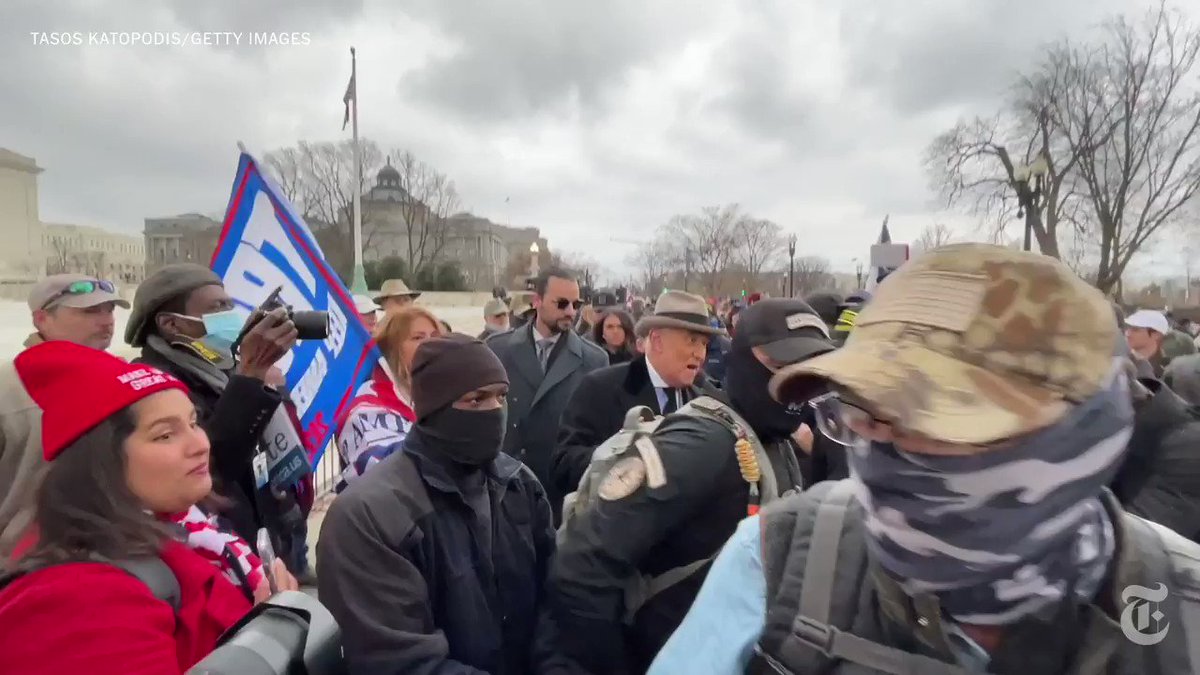Here's @immcouncil's fact sheet on the bars: https://t.co/HgQRO49UOX
There is a LOT to like about this bill. I want to highlight some of the proposed changes beyond just legalization, including:
- Ending the 3 & 10 year bars
- Curbing the "Muslim ban" authority
- Preventing "aging out" of children on nonimmigrant
Here's @immcouncil's fact sheet on the bars: https://t.co/HgQRO49UOX
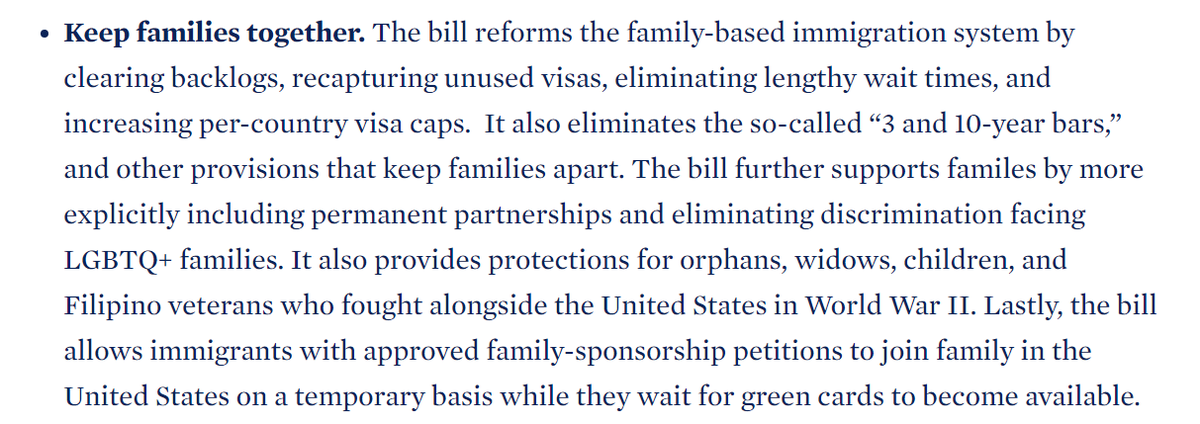
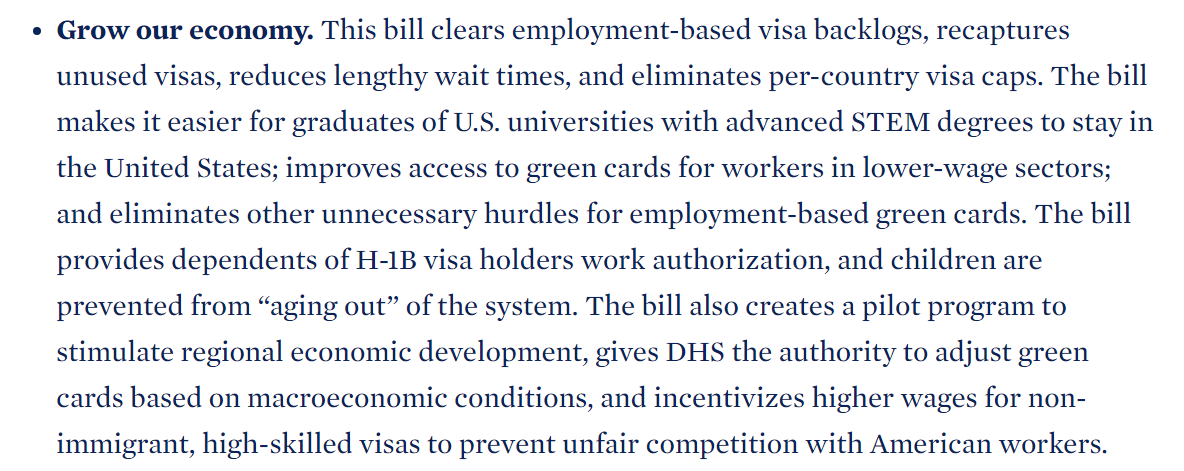
Under current laws, they have to leave the US when they turn 21 (if they can't get another visa).
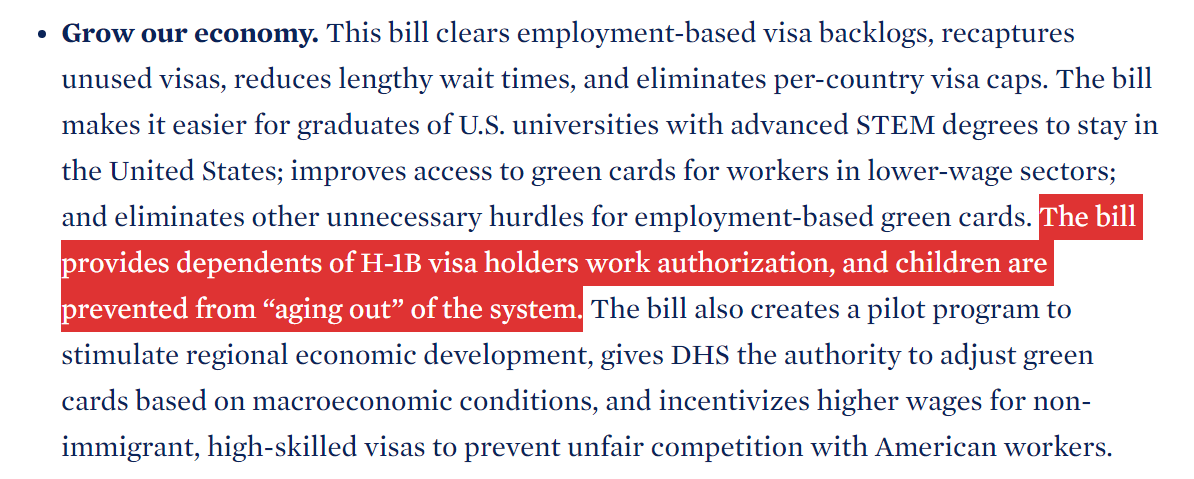

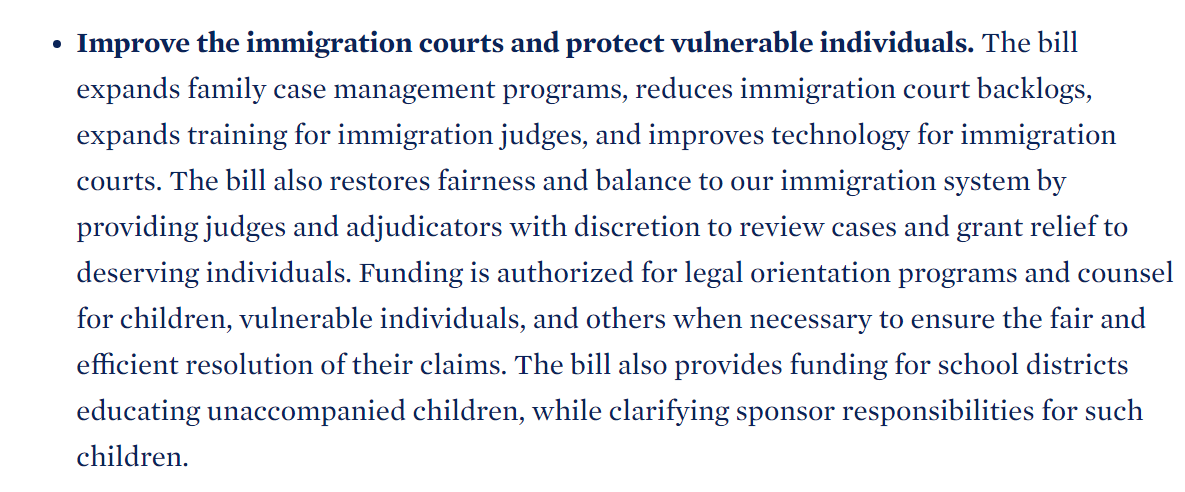
Under current law, a 5-year-old can legally face an immigration judge without a lawyer.
Under the new bill, that wouldn't be allowed. It's a welcome change!
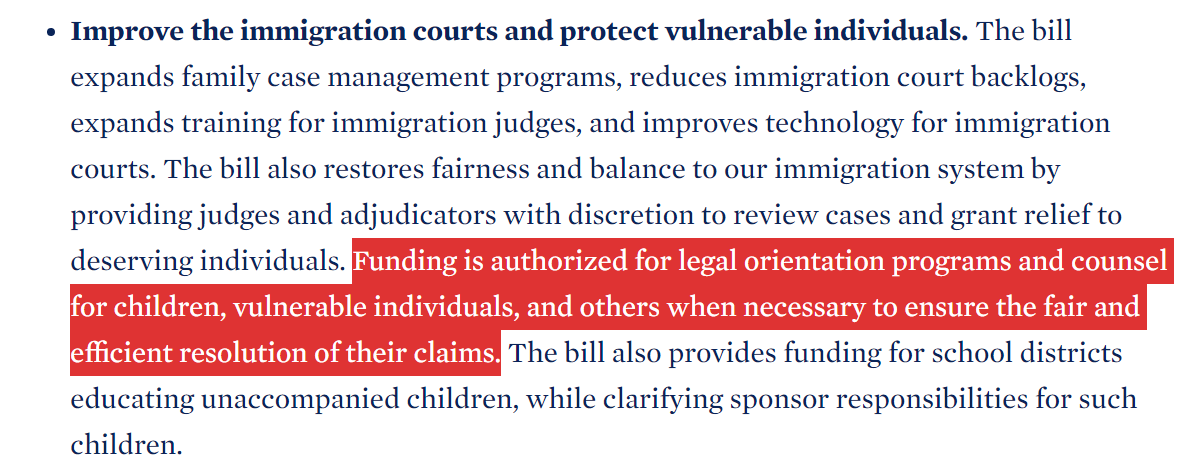
Congress got rid of a version of that authority in 1996 and it did enormous damage.
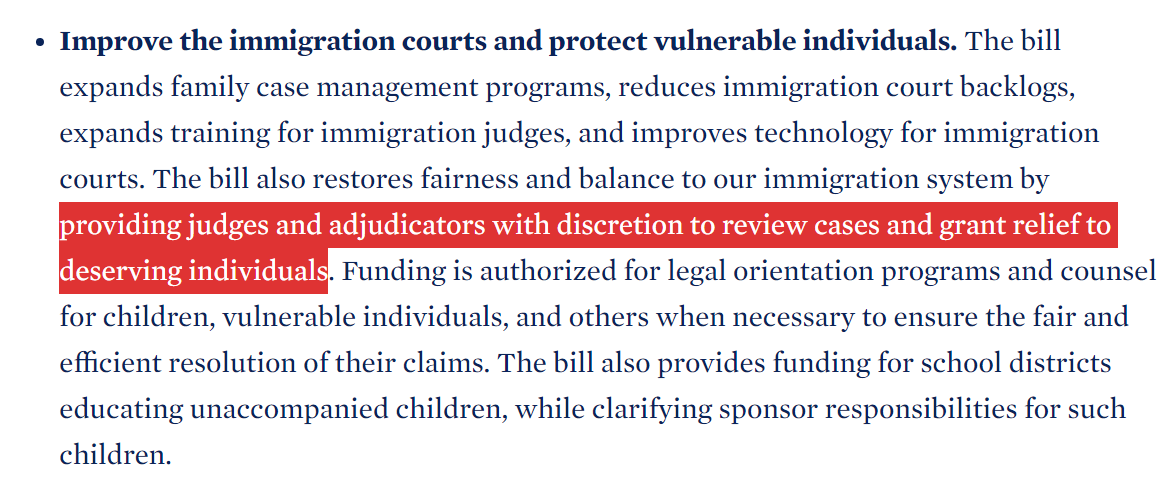
I wish it did more on substantive asylum law, though.


Under Trump, the focus was almost entirely on hardening the border to stop people from getting in. This bill (which mirrors legislation previously introduced in the House) focuses on push factors.
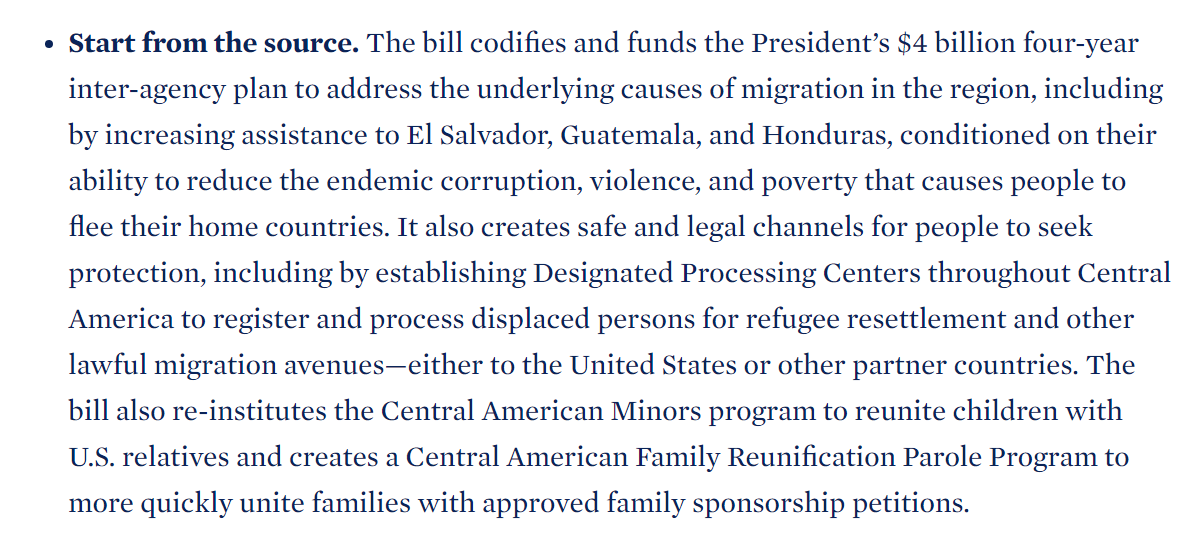
Personally, not a fan of any "tough on crime."

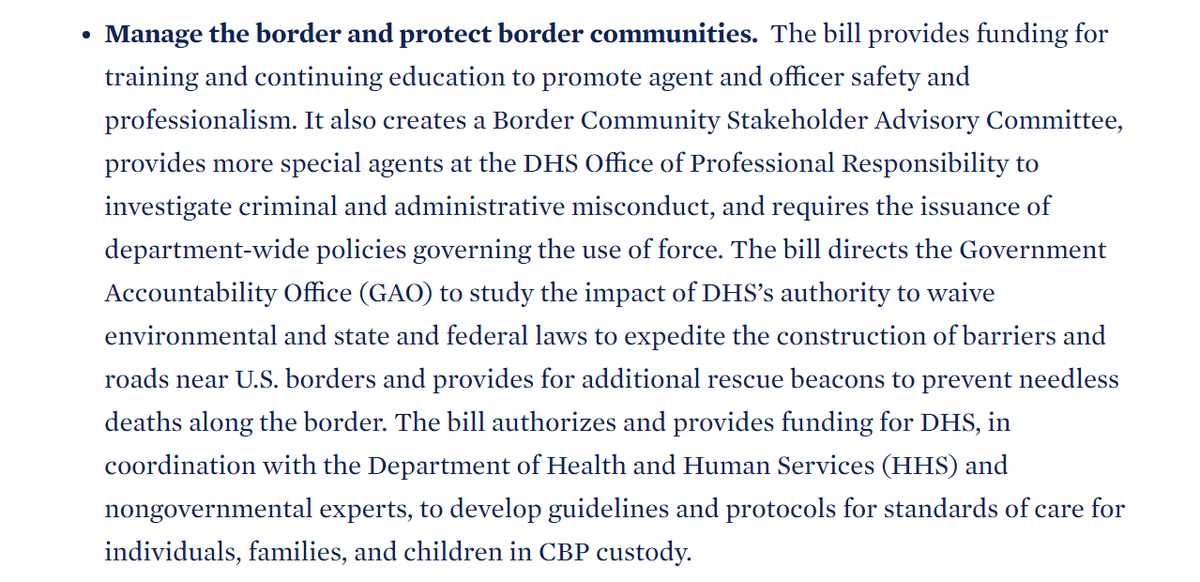
A lot of this is what has been deemed "smart enforcement," though privacy advocates have raised serious concerns about surveillance.
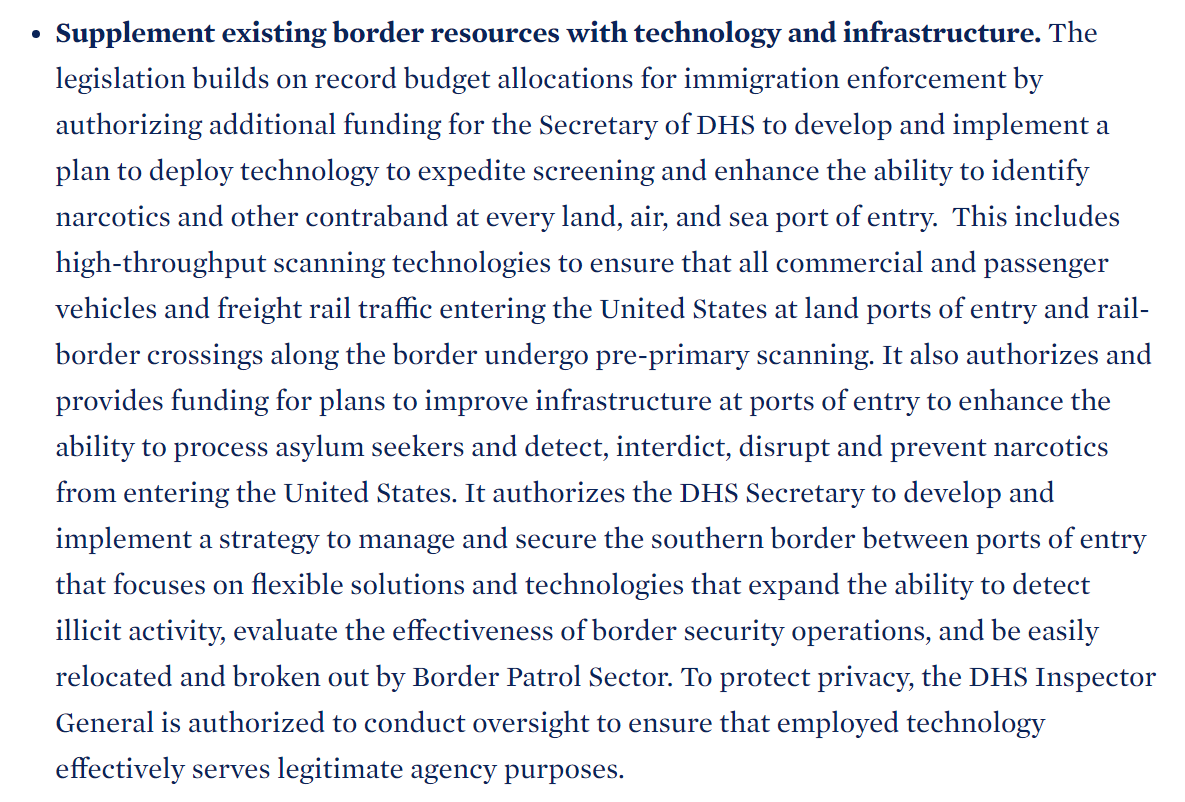
For example, the bill would block ICE from deporting someone while DOL was investigating abuses.
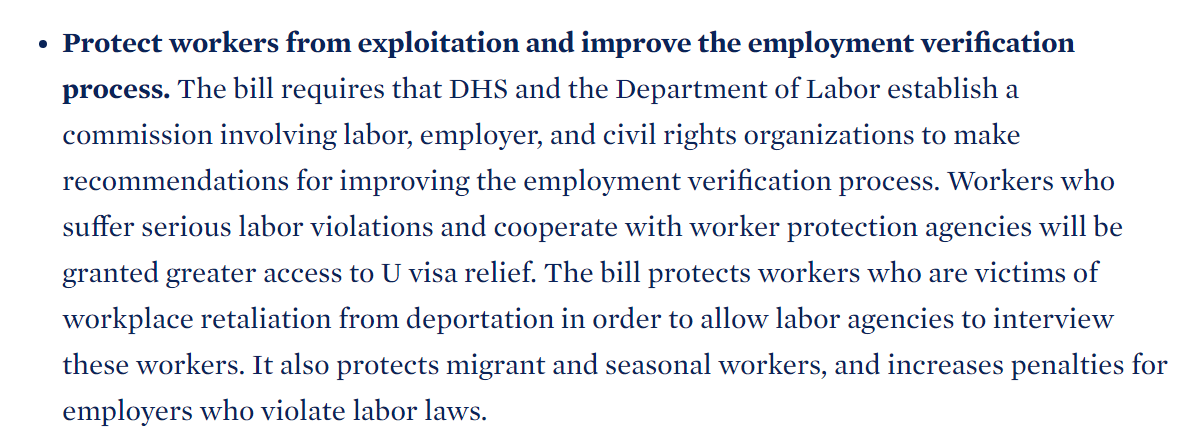
This is a bold plan to provide a path to status to ALL undocumented immigrants, not just a favored few.
An earned path to citizenship is overwhelmingly popular. I hope we get it.
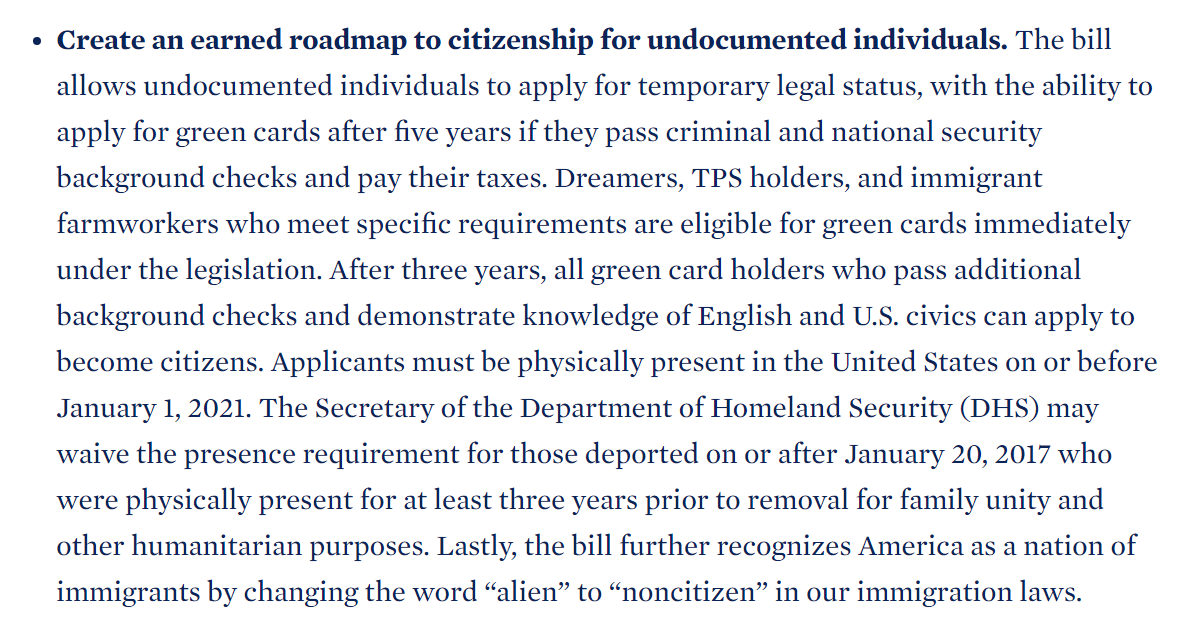
Now it's up to Congress.
Read our statement on the bill here:
https://t.co/DJ16zkFbXp
More from Aaron Reichlin-Melnick
A comprehensive new @HouseJudiciary report on family separation puts to bed any suggestion that the Trump administration intended to reunite families.
One damning new revelation? Former CBP head Kevin McAleenan tried to keep separations going after a court ordered them to stop. https://t.co/ORVnsA6fKi

One damning new revelation? Former CBP head Kevin McAleenan tried to keep separations going after a court ordered them to stop. https://t.co/ORVnsA6fKi

READ @HouseJudiciary new report on The Trump Administration's Family Separation Policy: Trauma, Destruction, and Chaos"
— Philip Wolgin (@pwolgin) October 29, 2020
551 pages (!) https://t.co/7MDT0e9wPX#FamiliesBelongTogether
We finally have the U.S. Citizenship Act Bill Text! I'm going to go through some portions of the bill right now and highlight some of the major changes and improvements that it would make to our immigration system.
Thread:
First the Bill makes a series of promises changes to the way we talk about immigrants and immigration law.
Gone would be the term "alien" and in its place is "noncitizen."
Also gone would be the term "alienage," replaced with "noncitizenship."
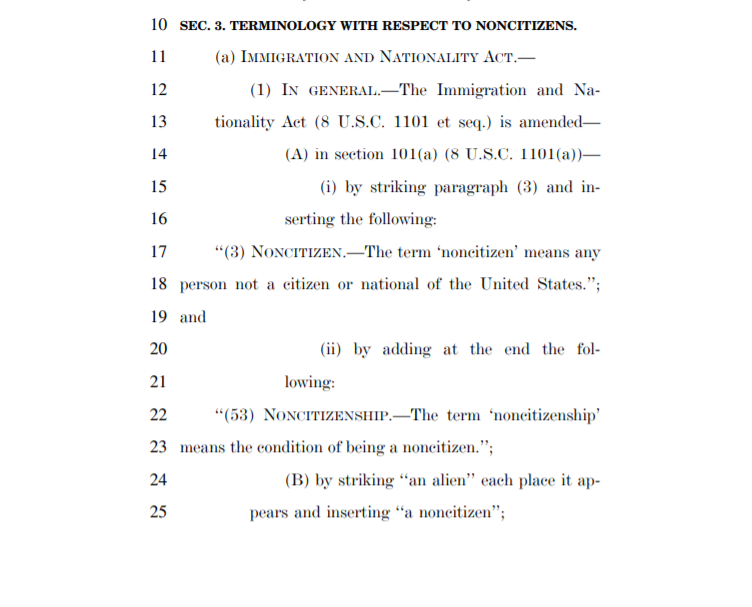
Now we get to the "earned path to citizenship" for all undocumented immigrants present in the United States on January 1, 2021.
Under this bill, anyone who satisfies the eligibility criteria for a new "lawful prospective immigrant status" can come out of the shadows.
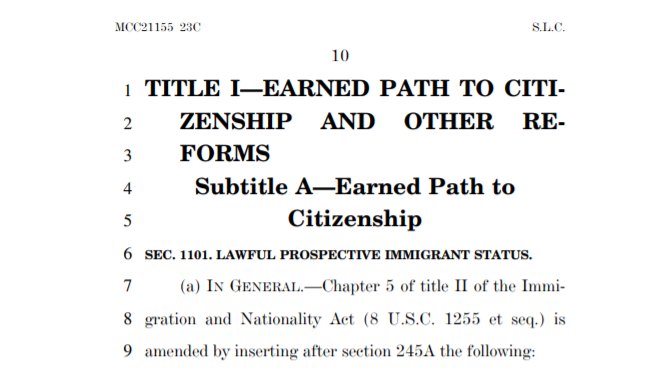
So, what are the eligibility criteria for becoming a "lawful prospective immigrant status"? Those are in a new INA 245G and include:
- Payment of the appropriate fees
- Continuous presence after January 1, 2021
- Not having certain criminal record (but there's a waiver)
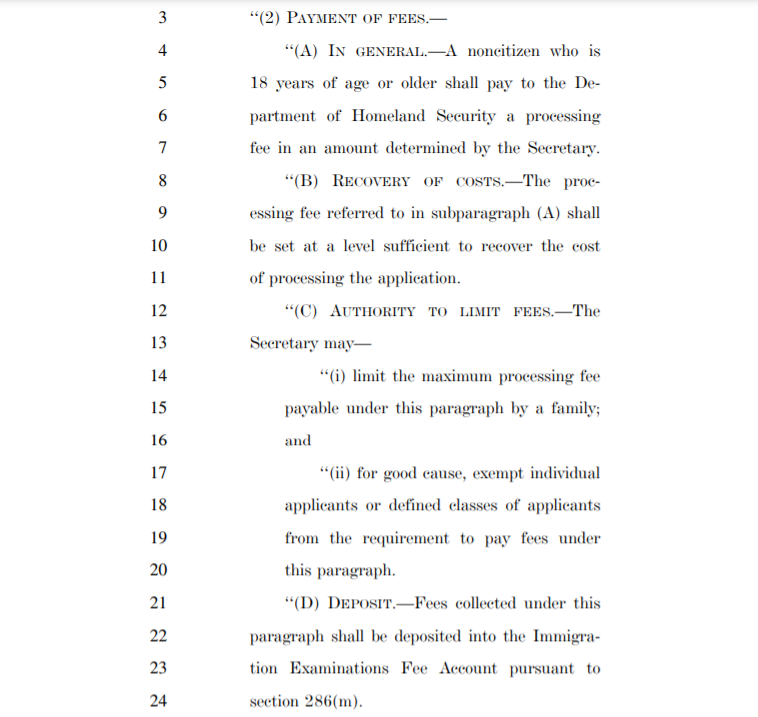
After a person has been in "lawful prospective immigrant status" for at least 5 years, they can apply for a green card, so long as they still pass background checks and have paid back any taxes they are required to do so by law.
However! Some groups don't have to wait 5 years.
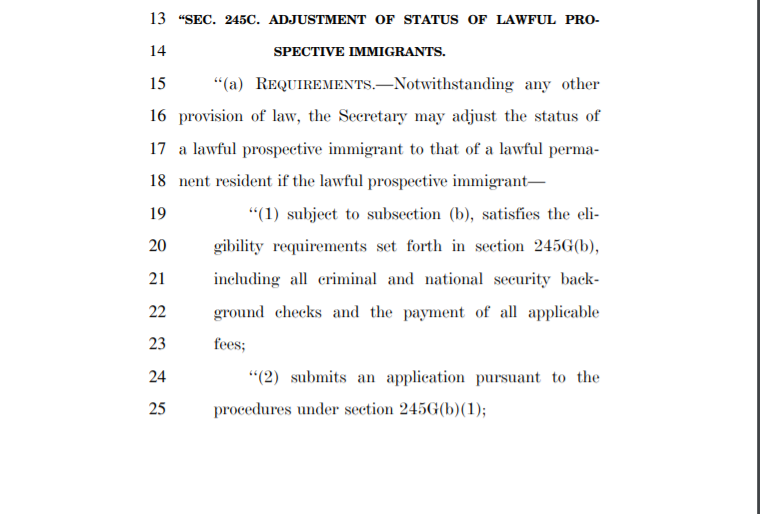
Thread:
The immigration bill text is out!
— Nicole Narea (@nicolenarea) February 18, 2021
Senate version: https://t.co/aJUmtVW6Ir
House version: https://t.co/JMKjQaDi04
Excuse me while I go at this with a highlighter.
First the Bill makes a series of promises changes to the way we talk about immigrants and immigration law.
Gone would be the term "alien" and in its place is "noncitizen."
Also gone would be the term "alienage," replaced with "noncitizenship."

Now we get to the "earned path to citizenship" for all undocumented immigrants present in the United States on January 1, 2021.
Under this bill, anyone who satisfies the eligibility criteria for a new "lawful prospective immigrant status" can come out of the shadows.

So, what are the eligibility criteria for becoming a "lawful prospective immigrant status"? Those are in a new INA 245G and include:
- Payment of the appropriate fees
- Continuous presence after January 1, 2021
- Not having certain criminal record (but there's a waiver)

After a person has been in "lawful prospective immigrant status" for at least 5 years, they can apply for a green card, so long as they still pass background checks and have paid back any taxes they are required to do so by law.
However! Some groups don't have to wait 5 years.

More from Government
You May Also Like
This is NONSENSE. The people who take photos with their books on instagram are known to be voracious readers who graciously take time to review books and recommend them to their followers. Part of their medium is to take elaborate, beautiful photos of books. Die mad, Guardian.
THEY DO READ THEM, YOU JUDGY, RACOON-PICKED TRASH BIN

If you come for Bookstagram, i will fight you.
In appreciation, here are some of my favourite bookstagrams of my books: (photos by lit_nerd37, mybookacademy, bookswrotemystory, and scorpio_books)

Beautifully read: why bookselfies are all over Instagram https://t.co/pBQA3JY0xm
— Guardian Books (@GuardianBooks) October 30, 2018
THEY DO READ THEM, YOU JUDGY, RACOON-PICKED TRASH BIN

If you come for Bookstagram, i will fight you.
In appreciation, here are some of my favourite bookstagrams of my books: (photos by lit_nerd37, mybookacademy, bookswrotemystory, and scorpio_books)

Oh my Goodness!!!
I might have a panic attack due to excitement!!
Read this thread to the end...I just had an epiphany and my mind is blown. Actually, more than blown. More like OBLITERATED! This is the thing! This is the thing that will blow the entire thing out of the water!
Has this man been concealing his true identity?
Is this man a supposed 'dead' Seal Team Six soldier?
Witness protection to be kept safe until the right moment when all will be revealed?!
Who ELSE is alive that may have faked their death/gone into witness protection?

Were "golden tickets" inside the envelopes??

Are these "golden tickets" going to lead to their ultimate undoing?
Review crumbs on the board re: 'gold'.

#SEALTeam6 Trump re-tweeted this.

I might have a panic attack due to excitement!!
Read this thread to the end...I just had an epiphany and my mind is blown. Actually, more than blown. More like OBLITERATED! This is the thing! This is the thing that will blow the entire thing out of the water!
Tik Tok pic.twitter.com/8X3oMxvncP
— Scotty Mar10 (@Allenma15086871) December 29, 2020
Has this man been concealing his true identity?
Is this man a supposed 'dead' Seal Team Six soldier?
Witness protection to be kept safe until the right moment when all will be revealed?!
Who ELSE is alive that may have faked their death/gone into witness protection?

Were "golden tickets" inside the envelopes??

Are these "golden tickets" going to lead to their ultimate undoing?
Review crumbs on the board re: 'gold'.

#SEALTeam6 Trump re-tweeted this.



